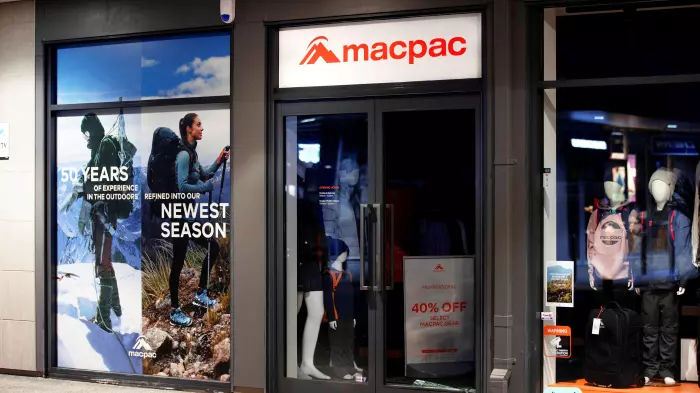Sanford delivers an improved full year result
FLLYR
Fri, Nov 15 2024 08:30 am
15 November 2024
Sanford delivers an improved full year result
Summary:
• Revenue of $582.9m, up 5% on the prior comparative period (pcp).
• Adjusted EBIT of $74.2m, a record, and up 50% on pcp.
• EBIT of $54.3m, up 75% on pcp.
• Net Profit after Tax (NPAT) of $19.7m, up 96% on pcp. Improved NPAT achieved after incurring $19.9m of adjustments and a non-cash tax expense required after a New Zealand tax legislation change removing the ability to claim tax deductions on buildings.
• Operating cashflow of $73.0m, a record, and up 78% on pcp.
• Net debt of $185.5m, down 5% on pcp.
• Final dividend of 5.0 cents per share (cps) fully imputed, taking the full year FY24 dividend to 10.0c per share.
Sanford’s Managing Director, David Mair, said “Sanford’s financial result represents a record adjusted EBIT profit – one we have achieved despite challenging global economic conditions. The FY24 net profit after tax (NPAT) was $19.7 million, a 96% improvement on last year’s result. Operating cash flow of $73.0 million is $31.9 million (+78%) increase over the prior period, an exceptionally good result. A 5% increase in overall revenue, combined with a team focus on selling through aged inventory (orange roughy) and a concerted effort to expedite cash collection, positively led to cash flow improvements”.
An adjusted EBIT of $74.2m is a result of improved performances from all divisions. Demand and pricing have remained strong for most products and species throughout the year and margins have improved.
Export markets have been simplified, with consolidation in some channels resulting in reduced distribution costs. There has been a focus on lowering overhead costs throughout the year and accompanied with channel simplification, we are seeing costs reduce.
FY24 has not been burdened with the high cost of the Sancore ERP system change which was a large and complicated replacement of Sanford’s core operational and financial systems. The system is now business as usual as we attempt to extract the benefits from such a large investment.
Capital expenditure at $45.6m for FY24 is a 31% reduction on FY23. Most of this spend is related to wildcatch maintaining an aging fleet and making progress payments on the new scampi vessel.
The balance sheet was strengthened with net debt at $185.5m, down 5% on FY24 which is a result of the improved financial performance, increased operational cashflows and reduced capital expenditure.
Review of Assets
A critical review of assets was undertaken in the second half of the year resulting in the impairment of NIML assets. Further impairments include unused assets, the impairment of the Auckland site buildings and redundant assets and the underperforming Two Islands investment (recognised at HY24). Abnormal adjustments associated with impairment totalled a net $19.9m for the financial year.
David said “Sanford has a significant tangible and intangible asset base of over $1 billion, measured using a mixture of book and fair value. Judicious management of this asset base is an important component of the business.
As part of the strategic review of each business, a rigorous focus will be applied to determining if sufficient returns are being achieved on these assets. This review encompasses a consideration of short-and medium-term use and profitability attained from our assets. It will be necessary to focus on aged assets and whether required maintenance and upkeep is commensurate with attainable and incremental profit achievement. As is evident with the asset impairments identified and recognised in FY24, we have commenced this review, however, the business will look to complete this exercise in the first half of FY25”.
Dividend
While there has been an improvement in profitability and operating cashflows, David Mair said “We are in the business of natural protein production, with all the vagaries and uncertainties that that implies. A reconsideration of the appropriate level of debt for the business, and associated interest costs, is merited”.
A final, fully imputed dividend of 5.0 cents per share (cps) was declared by the Board, taking the full year dividends to 10.0cps. The dividend will be paid on Monday 09 December 2024 to shareholders of record on Monday, 02 December 2024. A reduction in the final dividend relative to prior year reflects a conscious decision by directors to reduce levels of core debt in the business.
Our Future
While there have been strong prices for most of FY24, we anticipate there will be price pressure on some species, particularly products to China in FY25. Productivity plans are needed to mitigate increasing costs such as fuel, feed, freight, wages and salaries.
David said “There is a need to review every process and commit to continuous improvement to mitigate further cost increases (and even achieve savings). My objective is to simplify and optimise standardised business processes and tools, enabling more cost-effective outcomes, access to more insightful information, a more secure environment and ultimately better outcomes for our customers and our people”.
David emphasised “Prioritisation will be to ensure that we have a structure which supports front-end activity with our customers. We then need to ensure that we have a back- end that is focused on reducing product costs relentlessly. In that context, there is also a need to carefully consider the size of the corporate structure that we can afford”.
Whilst this cost reduction strategy will be rigorously pursued in FY25, it is not expected that the net benefits of these initiatives will play through until FY26.
Sanford’s Chair Sir Rob Mcleod said “The Board has mandated David to review the Group’s operations and strategy which is a very important work in progress. I want to stress that the entire Board is committed to the primary objective of maximising total shareholder return, measured by share price and dividend performance”.
For further information, please contact:
Paul Alston
Chief Financial Officer
[email protected]
021 918 033




